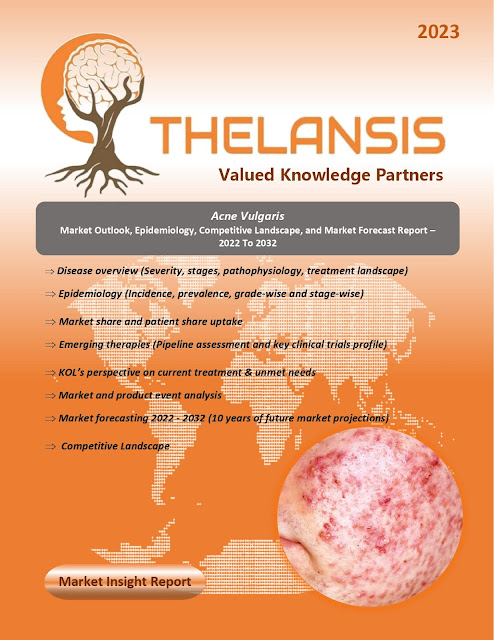Blepharospasm (BSP) – Market outlook, Epidemiology, Competitive Landscape, and Market Forecast Report – 2020 To 2030
Blepharospasm (BSP) is a type of focal dystonia characterized by spasms of the eyelids, involuntary closure of the eye, increased spontaneous blinking, or any combination of the previous ones. Patients may initially experience mild and infrequent spasms. However, as symptoms progress, patients may experience visual disability and social withdrawal within 6 months to 3 years, significantly impacting their quality of life. Blepharospasm is characterized by orbicularis oculi muscle spasms that are stereotyped, bilateral, and synchronous. Spasms can be brief or prolonged, and they can cause the eyelids to narrow or close. Sensory tricks that can temporarily improve eyelid spasms in about half of the patients, associated apraxia of eyelid opening, and increased spontaneous blink rate are also relevant manifestations. Dystonia is a functional disorder, so neurophysiology is an essential methodology for studying it, identifying the underlying pathophysiological mechanisms, and providing cues for differential diagnosis when clinical signs and symptoms are not clear. Blepharospasm can be diagnosed infrequently and is difficult to diagnose; however, electrodiagnosis is an essential tool in the diagnosis of blepharospasm.
The annual incidence ranges from
Blepharospasm (BSP) 20 to 56 cases per million in the USA.
The competitive
landscape of Blepharospasm (BSP) includes country-specific approved and
pipeline therapies. Any asset/product-specific designation or review and
Accelerated Approval are tracked and supplemented with analyst commentary.
KOLs insights of Blepharospasm
(BSP) across the 8 MM market from the center of Excellence/ Public/ Private
hospitals participated in the study. Insights around current treatment
landscape, epidemiology, clinical characteristics, future treatment paradigm,
and Unmet needs.
Blepharospasm
(BSP) Market
Forecast: Patient Based Forecast Model (MS. Excel Based Automated
Dashboard), which Data Inputs with sourcing, Market Event, and Product Event,
Country specific Forecast Model, Market uptake and patient share uptake,
Attribute Analysis, Analog Analysis, Disease burden, and pricing scenario,
Summary, and Insights.
S. No Asset Company Stage
1 Dipraglurant Addex
Pharma S.A. Phase 2
2 Clostridium Botulinum Toxin Type A Daewoong Pharmaceutical Co. Phase
3
3 Neuronox Medy-Tox Phase 3
4 ncobulinumtoxinA (Xeomin), Merz
Pharmaceuticals GmbH Phase 3
5 Botulinum toxin type A Ipsen Phase 2




Comments
Post a Comment